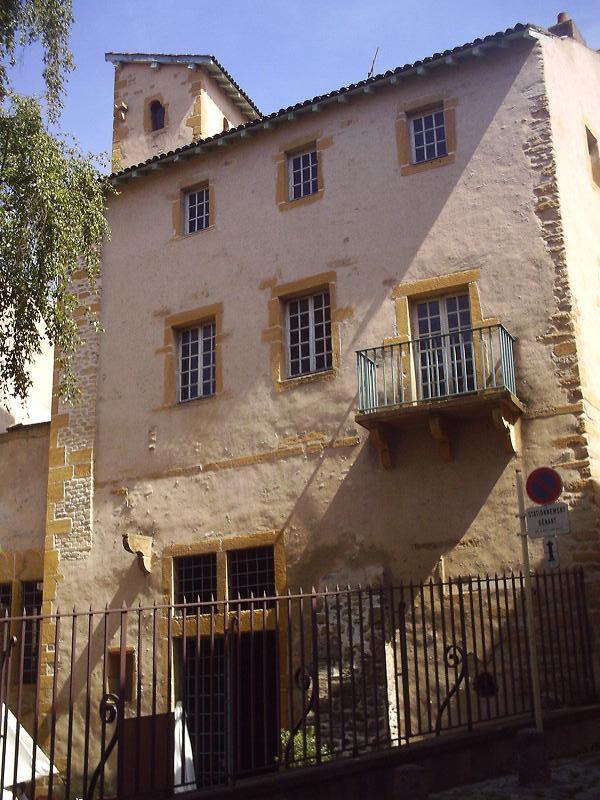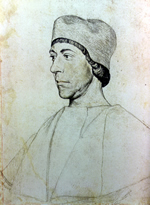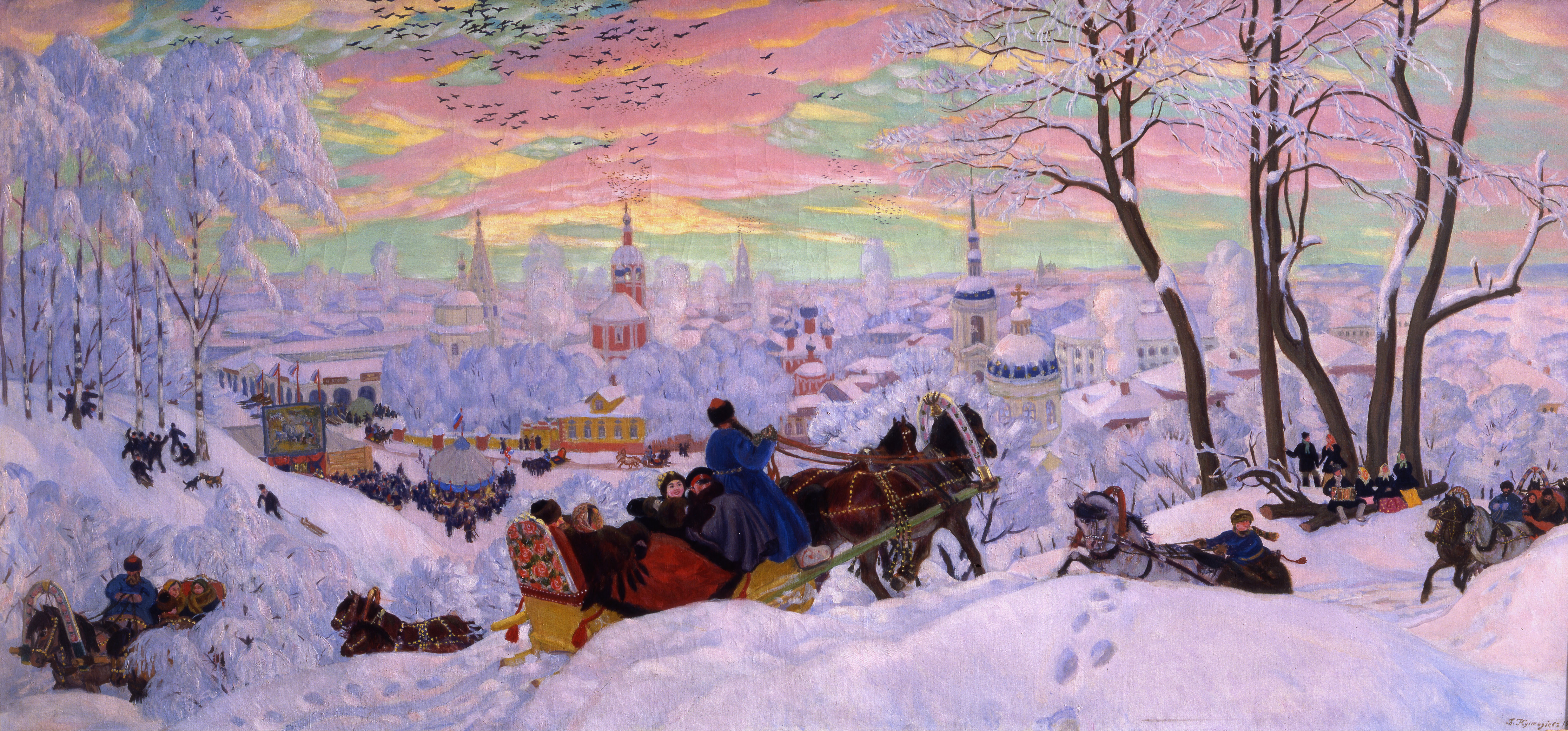|
François Rabelais
François Rabelais ( , ; ; born between 1483 and 1494; died 1553) was a French writer who has been called the first great French prose author. A Renaissance humanism, humanist of the French Renaissance and Greek scholars in the Renaissance, Greek scholar, he attracted opposition from both Protestant theologian John Calvin and from the hierarchy of the Catholic Church. Though in his day he was best known as a physician, scholar, diplomat, and Catholic priest, later he became better known as a satirist for his depictions of the grotesque, and for his larger-than-life characters. Living in the religious and political turmoil of the Reformation, Rabelais treated the great questions of his time in his novels. Rabelais admired Erasmus and like him is considered a Christian humanism, Christian humanist. He was critical of medieval scholasticism and lampooned the abuses of powerful princes and popes. Rabelais is widely known for the first two volumes relating the childhoods of the gia ... [...More Info...] [...Related Items...] OR: [Wikipedia] [Google] [Baidu] |
Seuilly
Seuilly () is a Communes of France, commune in the Indre-et-Loire Departments of France, department in central France. Population Sights La Devinière, in Seuilly, houses a museum dedicated to François Rabelais, and is claimed to be the writer's birthplace. See also *Communes of the Indre-et-Loire department References Communes of Indre-et-Loire {{IndreLoire-geo-stub ... [...More Info...] [...Related Items...] OR: [Wikipedia] [Google] [Baidu] |
Christian Humanism
Christian humanism refers to two intellectual movements: the anti-paganizing wing of sixteenth century Renaissance humanism (the scholarly movement and worldview that recovered the classical humanities and ideals of citizenship and human dignity;) and modern Christian humanism proper, which is the assertion within a Christian moral framework of humanitarian principles such as universal human dignity, and individual freedom, and which regards the importance of happiness as essential and principal or even exclusive components of the teachings of Jesus. It is not to be confused with modern humanism, which refers to philosophies that assert the primacy of human values and frame of reference over gods, theology, or religion in general. It should also not be conflated with religious humanism, which refers to a nontheistic movement that practices humanism in congregational structures. Terminology Historian Margaret Mann Phillips wrote that the basis of Christian humanism was "the ... [...More Info...] [...Related Items...] OR: [Wikipedia] [Google] [Baidu] |
Quadrivium
From the time of Plato through the Middle Ages, the ''quadrivium'' (plural: quadrivia) was a grouping of four subjects or arts—arithmetic, geometry, music, and astronomy—that formed a second curricular stage following preparatory work in the ''trivium'', consisting of grammar, logic, and rhetoric. Together, the '' trivium'' and the ''quadrivium'' comprised the seven liberal arts, and formed the basis of a liberal arts education in Western society until gradually displaced as a curricular structure by the ''studia humanitatis'' and its later offshoots, beginning with Petrarch in the 14th century. The seven classical arts were considered "thinking skills" and were distinguished from practical arts, such as medicine and architecture. The ''quadrivium'', Latin for 'four ways', and its use for the four subjects have been attributed to Boethius, who was apparently the first to use the term when affirming that the height of philosophy can be attained only following "a sort of four ... [...More Info...] [...Related Items...] OR: [Wikipedia] [Google] [Baidu] |
Trivium
The trivium is the lower division of the seven liberal arts and comprises grammar, logic, and rhetoric. The trivium is implicit in ("On the Marriage of Philology and Mercury") by Martianus Capella, but the term was not used until the Carolingian Renaissance, when it was coined in imitation of the earlier quadrivium. Grammar, logic, and rhetoric were essential to a classical education, as explained in Plato's dialogues. The three subjects together were denoted by the word ''trivium'' during the Middle Ages, but the tradition of first learning those three subjects was established in Education in ancient Greece, ancient Greece, by rhetoricians such as Isocrates. Contemporary iterations have taken various forms, including those found in certain British and American universities (some being part of the Classical education movement) and at the independent Oundle School in the United Kingdom. Etymology Etymologically, the Latin word means "the place where three roads meet" ( + ); h ... [...More Info...] [...Related Items...] OR: [Wikipedia] [Google] [Baidu] |
Guillaume Budé
Guillaume Budé (; Onomastic Latinisation, Latinized as Guilielmus Budaeus; January 26, 1467 – August 20, 1540) was a French scholar and humanist. He was involved in the founding of Collegium Trilingue, which later became the Collège de France. Budé was also the first keeper of the royal library at the Palace of Fontainebleau, which was later moved to Paris, where it became the Bibliothèque nationale de France. He was an ambassador to Rome and held several important judicial and civil administrative posts. Life Budé was born in Paris. He went to the University of Orléans to study law, but for several years, having ample means, he led an idle and dissipated life. When about twenty-four years of age, he was seized with a sudden passion for study, and made rapid progress, particularly in Latin and Ancient Greek. The work which gained him greatest reputation was his ''De Asse et Partibus Eius'' (1514), a treatise on ancient coins and measures. He was held in high esteem ... [...More Info...] [...Related Items...] OR: [Wikipedia] [Google] [Baidu] |
Shrove Tuesday
Shrove Tuesday (also known as Pancake Tuesday or Pancake Day) is the final day of Shrovetide, which marks the end of the pre-Lenten season. Lent begins the following day with Ash Wednesday. Shrove Tuesday is observed in many Christian state, Christian countries through participating in Confession (religion)#Christianity, confession, the ritual burning of the previous year's Holy Week palms, finalizing one's Lenten sacrifice, as well as eating pancakes and other sweets. Shrove Tuesday is observed by many Christians, including Anglicans, Lutherans, Methodists, Western Orthodox, Western-rite Orthodox Christians, and Roman Catholics, who "make a special point of self-examination, of considering what wrongs they need to repent, and what amendments of life or areas of spiritual growth they especially need to ask God's help in dealing with." This moveable feast is determined by date of Easter, the date of Easter. The expression "Shrove Tuesday" comes from the word ''wikt:en:shrive, shr ... [...More Info...] [...Related Items...] OR: [Wikipedia] [Google] [Baidu] |
Abel Lefranc
Maurice Jules Abel Lefranc (27 July 1863 – 26 November 1952) was a historian of French literature, expert on Rabelais, and the principal advocate of the Derbyite theory of Shakespeare authorship. Early life Lefranc was born in Élincourt-Sainte-Marguerite. After studying at the École Nationale des Chartes, where he wrote a thesis on the history and organization of the town of Noyon until the end of the 13th century (1886). He left to study in Leipzig and Berlin (1887), where he prepared a report on the teaching of history in Germany, which he believed to be the most advanced in the world. Marcel Bataillon, Charles Samaran, Raymond Lebègue, Michel François, Fernand Desonay et Christian Fouchet, ''Hommage à Abel Lefranc (1863–1963). Commémoration du centenaire de sa naissance'', Paris, 1964. Scholarly career While working with the National Archives, he continued his historical research, turning specifically to the 16th century. In 1893, at the age of 30, he publish ... [...More Info...] [...Related Items...] OR: [Wikipedia] [Google] [Baidu] |
Indre-et-Loire
Indre-et-Loire () is a department in west-central France named after the Indre River and Loire River. In 2019, it had a population of 610,079.Populations légales 2019: 37 Indre-et-Loire INSEE Sometimes referred to as Touraine, the name of the historic region, it is nowadays part of the . Its |
Chinon
Chinon () is a Communes of France, commune in the Indre-et-Loire Departments of France, department, Centre-Val de Loire, France. The traditional province around Chinon, Touraine, became a favorite resort of French kings and their nobles beginning in the late 15th and early 16th centuries. The Renaissance châteaux which they built new or erected on the foundations of old fortresses earned this part of the Loire Valley the nickname "The Garden of France." Chinon played an important and strategic role during the Middle Ages, serving both French and English kings. Chinon is known for Chinon AOC, its wine, Château de Chinon, castle, and historic town. Its part of the Loire Valley has been registered as a UNESCO World Heritage Site since 2000. History The historic town of Chinon is on the banks of the river Vienne (river), Vienne about from where it joins the Loire. Settlement in Chinon dates from prehistoric times, with a pronounced importance for both French and English histor ... [...More Info...] [...Related Items...] OR: [Wikipedia] [Google] [Baidu] |
Seneschal
The word ''seneschal'' () can have several different meanings, all of which reflect certain types of supervising or administering in a historic context. Most commonly, a seneschal was a senior position filled by a court appointment within a royal, ducal, or noble household during the Middle Ages and early Modern period – historically a steward or majordomo of a medieval great house. In a medieval royal household, a seneschal was in charge of domestic arrangements and the administration of servants, which, in the medieval period particularly, meant the seneschal might oversee hundreds of laborers, servants and their associated responsibilities, and have a great deal of power in the community, at a time when much of the local economy was often based on the wealth and responsibilities of such a household. A second meaning is more specific, and concerns the late medieval and early modern nation of France, wherein the seneschal () was also a royal officer in charge of justice a ... [...More Info...] [...Related Items...] OR: [Wikipedia] [Google] [Baidu] |
Roger De Gaignières
Roger is a masculine given name, and a surname. The given name is derived from the Old French personal names ' and '. These names are of Germanic languages">Germanic origin, derived from the elements ', ''χrōþi'' ("fame", "renown", "honour") and ', ' ("spear", "lance") (Hrōþigēraz). The name was introduced into England by the Normans. In Normandy, the Franks, Frankish name had been reinforced by the Old Norse cognate '. The name introduced into England replaced the Old English cognate '. ''Roger'' became a very common given name during the Middle Ages. A variant form of the given name ''Roger'' that is closer to the name's origin is '' Rodger''. Slang and other uses From up to , Roger was slang for the word "penis". In ''Under Milk Wood'', Dylan Thomas writes "jolly, rodgered" suggesting both the sexual double entendre and the pirate term "Jolly Roger". In 19th-century England, Roger was slang for another term, the cloud of toxic green gas that swept through the chlori ... [...More Info...] [...Related Items...] OR: [Wikipedia] [Google] [Baidu] |




